Civil society and its evolving roles
The ‘Discussion’ section captures conversations and deliberations on topics of interest to those who work in the domains of education and development.
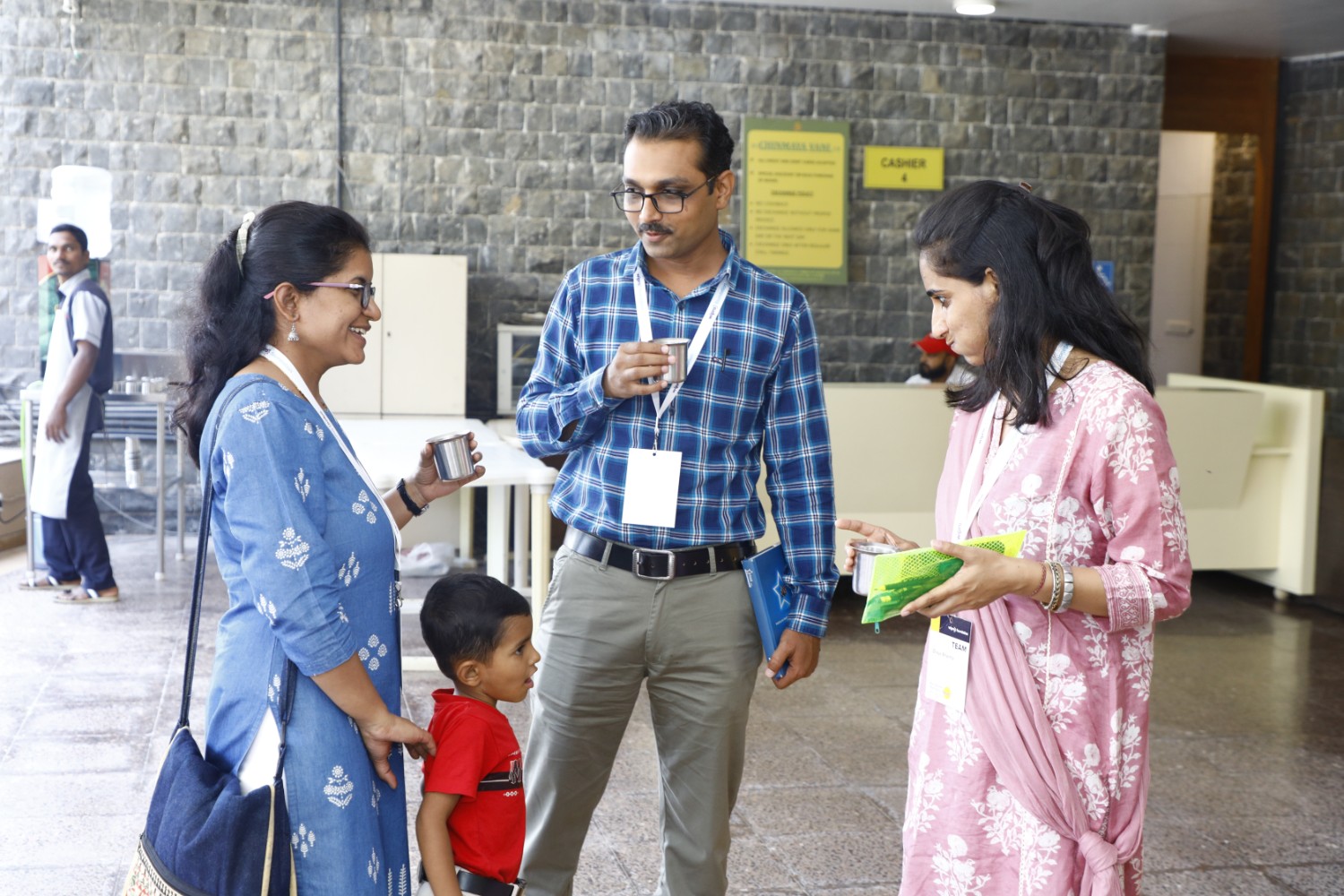
After the discussion on the evolving trends in the education space for the mid to long term period, the second panel on ‘Civil Society and its Evolving Roles’ on the third day of the 20th Partner’s Forum opened out questions around the existing trends and emerging needs for organizations in the civil society/ voluntary sector.
This discussion was moderated by Hridaykant Dewan (Hardy), while Ashish Kothari and Vijay Mahajan shared their journeys in the civil society sector and some insights and learnings for the next generation of civil society organizations (CSOs). The moderator and the speakers come with deep experience of having seen CSOs evolve across various phases of socio-economic and political shifts in the country.
Their discussions revolved around the speakers’ journeys in the civil society space and the trends and events that have shaped the sector. They also deliberated upon the current trends and questions that need deeper thinking, so that we can reclaim the role of civil society in its truest spirit.
Sharing by Vijay Mahajan: The speaker started by describing the evolution of society through the lens of the dynamics between state and market players. He described how the state took on prominence across the globe during the years of the two World Wars and during other global man-made and natural disasters.
However, in the 1990s and the 2000s, market institutions came into prominence due to liberalization, privatization and globalization. Their downfall came in during the recession of 2008, bringing state players to the fore again. This tug of war for dominance between the state and the market, he opined, will keep continuing unless civil society players come in to bring the balance.

He raised questions regarding the role of state institutions. States can be dominant as providers, as they are connected to, and control, most of the resources. However, should the role of designing, thinking and regulating be given up to state players as well? As the decades have gone by, we seem to have become more dependent on the state for all these kinds of roles and aspects of decision-making.
He shared from his lived experience that all meaningful state interventions started as civil society initiatives. It then becomes the state’s role to pick up the ideas that are showing results and promise, and replicate them. It is not the state’s role to be the architect of such initiatives, which is a civil society function.
He brought in the perspective of political economy (defining it as ‘pattern of control over resources’) through his work in the livelihoods space through PRADAN. He shared how his experience showed that enabling meaningful livelihoods in vulnerable and marginalized communities destabilizes the prevailing political economy. This often causes backlash by the state or other players controlling the resources.
Civil society organizations (CSOs) can play a critical role in engaging the political economy of a space through fraternity as the balancing value to the mutually contradictory forces of liberty and equality. He reinforced that in any space we might be working, it is critical to embody these values and ideas that we espouse. He went on to describe the evolution of the civil society space as he grew in it and experienced it over the last few decades. The key needs he stated, for NGOs to function more meaningfully, are technical, managerial and financial knowledge and skills. He shared the ‘4-I’ framework related to what it takes to build a sustainable initiative.
- The first ‘I’ involves ‘insights’. When working with people and communities, organizations gains insights by analysing experiences and observations through multiple perspectives.
- The second ‘I’ related to ‘ideas and ideals’. Based on insights, organizations need to identify the ideas and ideals they need to and want to pursue.
- The third ‘I’ is for ‘innovation’. This phase entails converting the idea into action to demonstrate the solutions in a particular context.
- The fourth and the final ‘I’ involves ‘institutionalization.’ This entails building a system to carry out the innovation/ solution at a larger scale and through the mainstream. This doesn’t always mean that the organization has to implement it. However, it can design it and support others in implementation.
In this context, Vijay discussed in some detail, the need for organizations in the current ecosystem to work on institutionalizing systems and processes to take innovations into the mainstream.
Sharing by Ashish Kothari: Ashish shared his journey in the world of environment protection from his days in high school when he began with work on animal rights issues. He shared his experience of starting a campaign to protect a local forest in the area, which to this day is a protected forest. He cofounded Kalpavriksh in order to make such efforts of protection more institutionalized.
He reiterated that this was not the first effort towards environmental protection. He reminded the audience about earlier movements and efforts to protect the environment – not just forests but all flora and fauna that make up an ecosystem. He mentioned the importance of movements and initiatives such as Chipko, other efforts in Uttarakhand to protect nature, efforts by the Bishnoi community, and Narmada Bachao Andolan, etc.
He brought out some fundamental questions that environmental protection efforts generate around what is development, who makes the decisions around what is development and at what level? Environment is a cross-cutting question about looking at economic planning and resource sharing that is intersectional, with aspects related to gender, livelihood and caste.
Civil society in the environment space has been raising the question of whose development and whose destruction (and not just for humans, but also for all species). CSOs, in such a space, perform the role of being an independent voice asking questions, not just to governments or market institutions, but to the communities they work with and also to themselves.
This role of raising questions also comes with the responsibility of thinking through solutions. Part of the solution lies in ancient practices, which were built in the spirit of caring and sharing between humans and the environment. This spirit and the community collective as a principle needs to be at the core of decision making and identifying alternatives. And the question that CSOs can perhaps ask themselves is whether they are functioning with this spirit.
In terms of what CSOs need to work on, Ashish shared that the spaces for ideating, innovating and identifying solutions for the crises we are experiencing lies within the NGOs space, and more importantly within communities and community-based organizations. The solutions are not about technology and technical innovation only.
These solutions need frameworks related to governance, innovation and decisionmaking as well. In this context, he mentioned a relevant framework by Kalpavriksh, called ‘Flower of Transformation’. He also mentioned three areas in which we need to do more work in the civil society sector. These are shared below.
- Ego and Territoriality: We need to build the humility to accept that the problems we face are intersectional in nature. We don’t know the whole picture. We need to recognize the need to come together and collaborate.
- Ineffective Scale and Replication Processes: The current process of working at scale is faulty. This is so, because often we see working at scale as about replicating a model in-toto. This needs to shift to identifying the principles and values underlying the model and then contextualizing the model. The other side to scale is also within organizations, as they grow larger in order to fuel the replication. Rather than scaling up, Ashish recommended ‘out-scaling,’ which is a process of creating alliances and horizontal networks to enable contextualized scale.
- Questioning Structures of Inequality: In the contexts we work in, there are all pervasive ideologies such as capitalism, state-ism, patriarchy and anthropocentrism at work, that produce inequities. We need to question these ideologies in reflective, constructive and accountable ways. For example, the solution to waste is not only in reusing and recycling, although these are important. We also need to start questioning as to why so much waste is being generated in the first place.
Sharing by Hridaykant Dewan (Hardy): Hardy added to the points shared by the speakers. He talked about the need for immersion in order to arrive at appropriate insights, ideas and innovations. He reiterated that often, it is not correct to think that an external person can just come in and solve a problem. Rather, solutions come from collective knowledge and are centred in communities.
He also brought in the political economy perspective on CSOs to understand how state and market institutions are creating a competitive environment within the civil society space. Reiterating the value of fraternity that Vijay mentioned, Hardy mentioned the need for NGOs to recognize that we don’t need to ‘recreate’ in our work. Rather, the need is to collaborate and create confidence in people. This will help all of us to attempt to solve wicked problems. There is no single route and model for this. The need of the hour is to contextualize implementation.
Post-Panel Discussions: The sharing by the panellists and the moderator evoked multiple strands of questions, comments and sharing by participants. Some of these were around creating a balance between collaborating with the system versus challenging it. Questions were also raised about how founders can build organizations but not make these be dependent on them. Some sharing took place about the ways in which educators can follow environmentally sound practices within classrooms and schools.
Some members of the audience also shared queries about the feasibility and modalities of shifting the mindset of the larger ecosystem about NGOs. Concerns were expressed about navigating processes where market players in the guise of CSOs are occupying more and more space. The need to create an ecosystem where smaller and larger organizations come together meaningfully was also expressed. These responses built further perspectives on working in the civil society space. Some aspects of these are discussed below.
Scale: While scaling up leads to inefficiency and bureaucracy, not scaling also deprives a large number of people of necessary services. The flaw perhaps lies in replicating processes rather than principles. It is also critical that policy making be part of out-scaling processes to ensure institutionalization. Part of the policy making process must be to ensure that the policy is not about a uniform formula. It has to have inbuilt social audit processes that enable contextualization and continued relevance.
Collaborations between State-Market-CSO Sectors: Each of these sectors has their own ‘swadharma,’ purpose and function to fulfil that contributes to building society meaningfully. State is about maximizing order and power. The market is about maximizing efficiency and profit. Civil society is about maximizing collective well-being.
So whatever kind of organization is there in a decision-making space, if they are fulfilling the purpose of collective well-being, it is something we need to be fine with. We need to enter these collective spaces with mutual respect, equality and a learning attitude that will take us from a project-oriented approach to a process-oriented one.
Organization Building: Founder syndrome is where there are structures and a perception that the organization can’t function without the founder. However, we need to build sustainable institutions with adequate finances and capable human resources. It is important for the founder’s growth to recognize that the founder and the organization are not one and the same.
It was also shared as a comment that these days there are more and more NGOs and lesser number of movements. The massive amount of funding that has flowed into the CSO sector is making it more and more like a business. This seems to have reduced the voluntary spirit. We need to create spaces for communities to challenge CSOs. Which begs the question as to whether we are empowering communities or creating a dependency within them on NGOs?
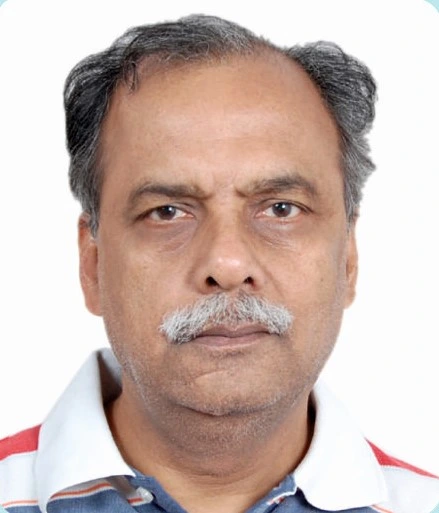
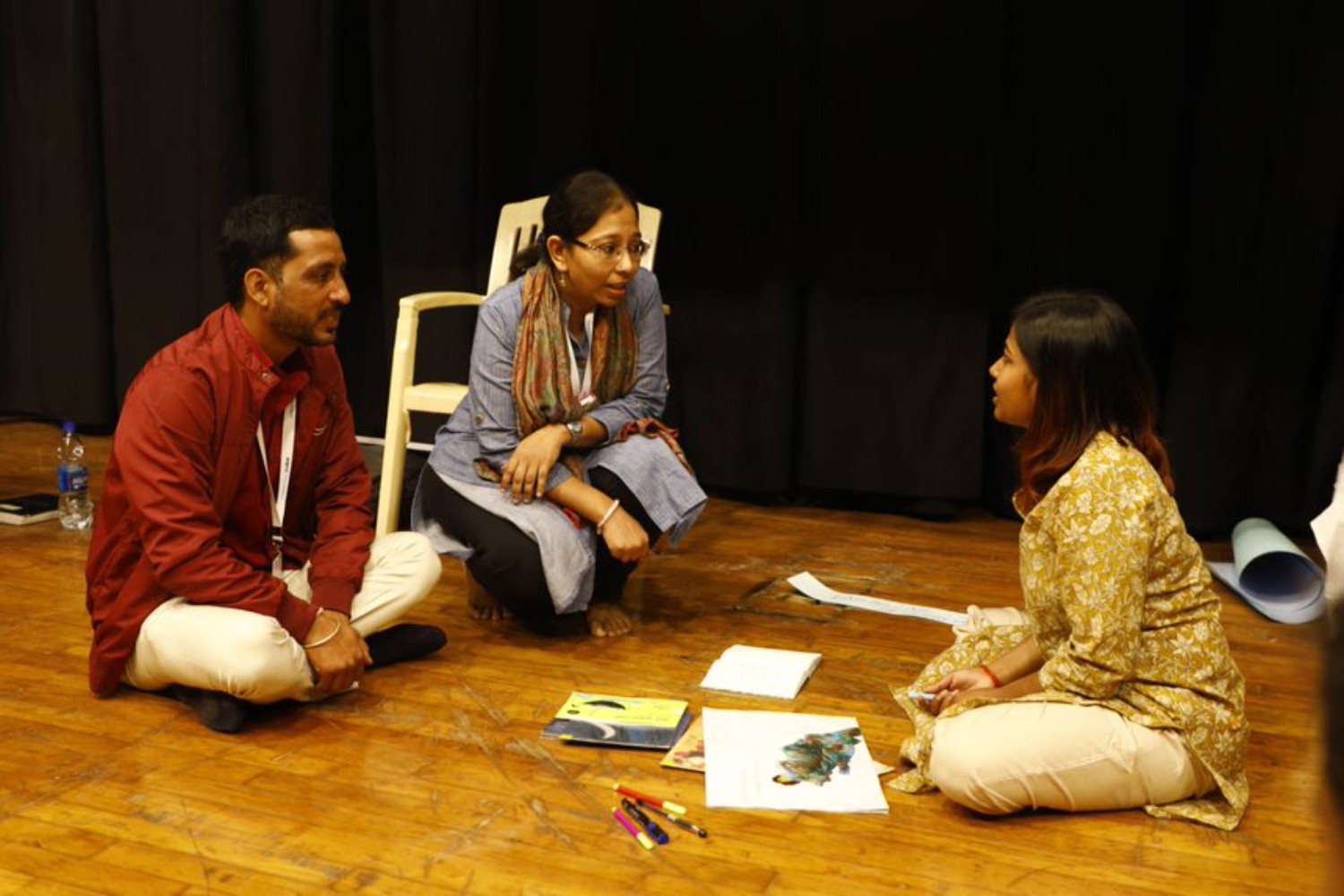
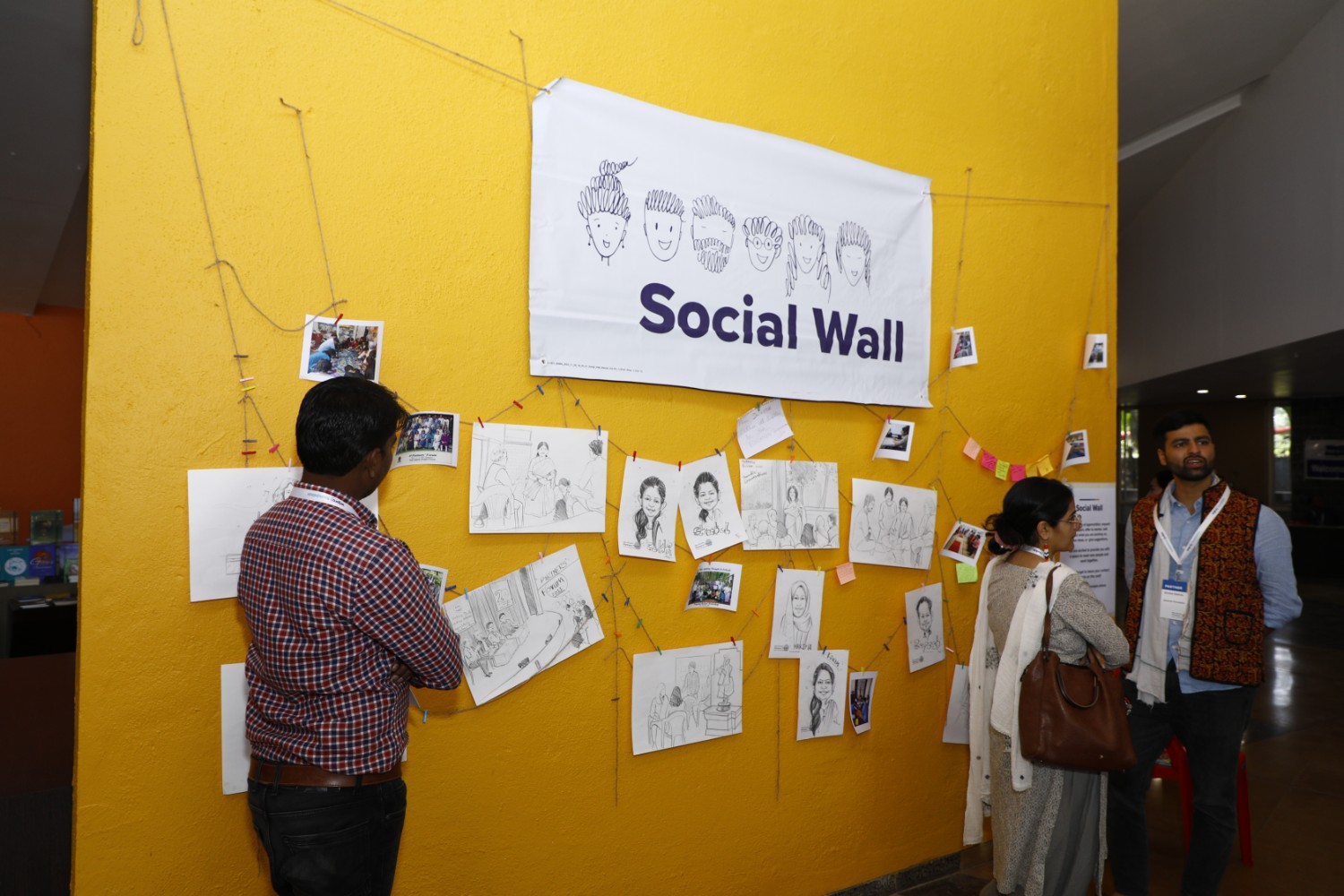
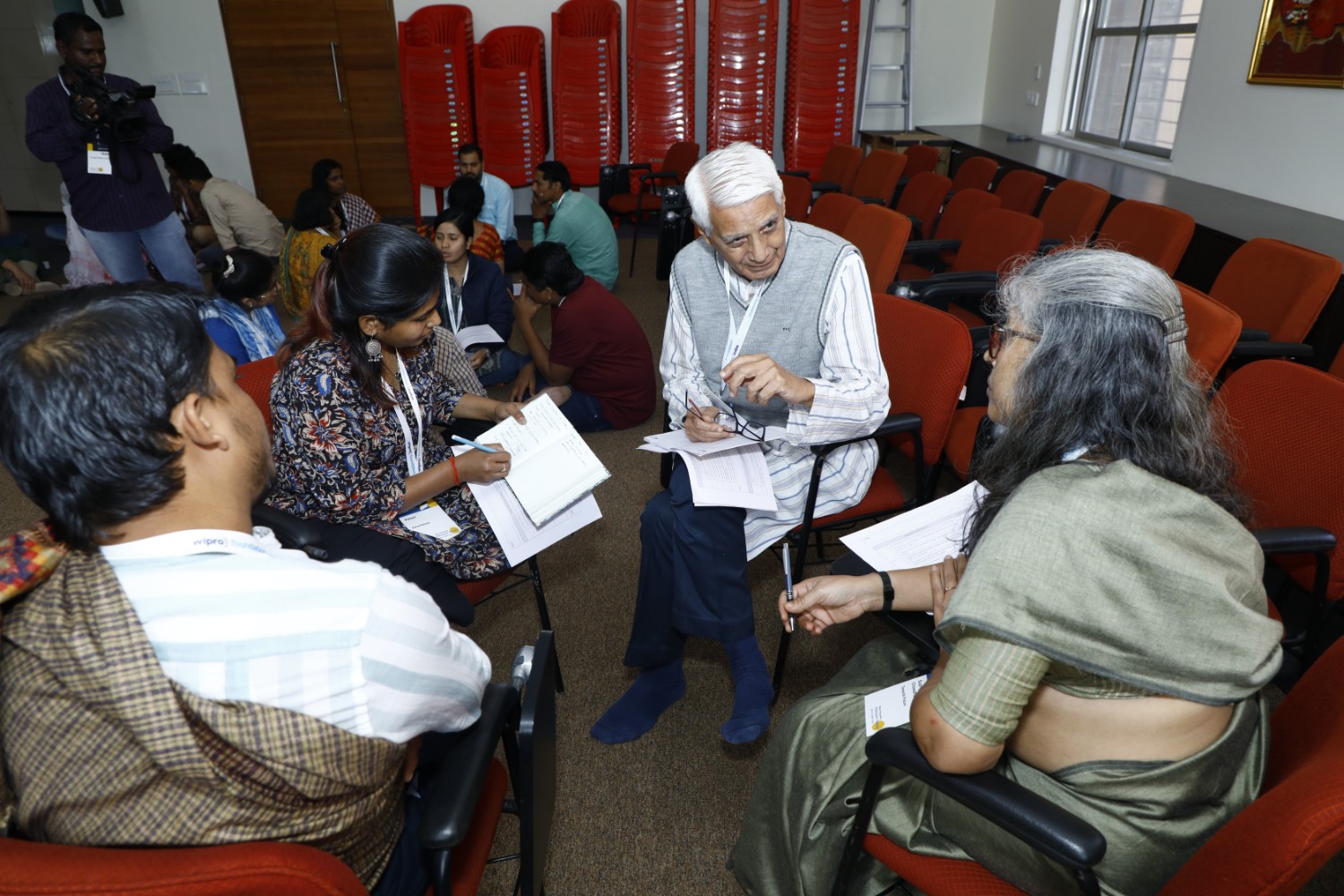
No approved comments yet. Be the first to comment!